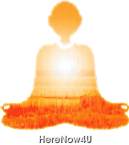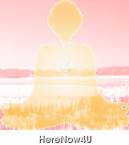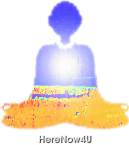


This is a world of diversity. Intellects are different; faces are different; sounds are different; religions are different; faiths are different. Colours are different; faculties are different tastes and temperaments are different. But one thing is common to all every one of us wants nitya sukha (eternal happiness), infinite knowledge, immortality, independence and freedom. These things can be attained by knowledge of the self alone.
Everybody wants happiness that is not mixed with sorrow and pain but he does not know where he can get this supreme bliss. The best means to acquire this knowledge is by the enquiry, "Who am I?" This has the potentiality of producing the quiescence of mind which will enable it to wade through this ocean of samsara (cycle of birth and death). It demands a sharp, subtle, pure intellect, bold understanding and gigantic will. The commonplace 'I' that everyone is glibly talking about and relishing acutely every moment of his life, from the babbling baby to the garrulous old man, must be clearly understood.
The physical body is not the 'I', it is the product of food it lives on food and dies without food. It is a bundle of skin, flesh, fat, bones, marrow, blood and a lot of other filthy things. It does not exist before birth or after death. It lasts for a short intervening period. It is transient. It undergoes changes such as childhood, youth and old age. It has six changes existence, birth, growth, modification, decay and death. It is not of one homogeneous essence; it is manifold, insentient, inert. It is an object of perception like a chair or a table. You continue to live even when hands and legs have gone.
How can the body be the selfexistent, eternally pure atman, the knower, the silent witness of the changes that take place in the body and in all things, the inner ruler of all?
You have learned that body and mind are not 'I'. You have learned that prana is not 'I'. The world is unreal, this thou hast understood. Thou hast understood that Soul alone is real. Now meditate on the formula 'I am Soul' Lose thyself, unite with him. Rest there peacefully, joyfully. This is the proper place, the abode of the pure.
Am I The I?
You say, "This is my body" this indicates that you are different from the body and the body is your instrument. You are holding it just as you hold a walking stick in your hand.
In sleep you exist independent of the walking stick in your hand (body). In dreams you operate through the astral body without having any concern for the fleshy body. Through ignorance you have identified yourself with the physical body and mistaken it for the real 'I' which is everpure, allpervading, selfexistent, selfluminous and selfcontained, which has neither beginning nor end, which is changeless, beyond time, space and causation, and which exists in the past the present and the future.
Prana (vital force) is not 'I'. It is the effect of rajas (energy). It is inert. It cannot welcome a man while you are asleep, though it is flowing. It increases and decreases. You say, "My prana" this shows you are different from prana. It is your instrument only. You can control the breath by pranayama. The controller is different from the controlled (prana). Prana is not 'I'.
Mind also is not 'I'. It gropes in darkness. It borrows light from a higher power. It gets puzzled and confused. During shock and fear it becomes insentient. It is the effect of satva. It is your instrument. You say, "my mind" therefore mind is different from 'I'. It is full of changing ideas. It has a beginning and an end. You can control the mind and the thoughts the controller is different from the controlled (mind). It is as much your property, and outside of you, as your limbs etc., or dress, chair, etc. In sleep there is no mind yet you wake up with a feeling of continuity of consciousness. There is no mind in delirium or coma yet 'I' remains. Mind is a bundle of thoughts and all thoughts are centred around the false egoistic little 'I'. The root thought of all these thoughts is the 'I' that is full of vanities.
Talking of myself, I always speak of 'I'. The sheaths in which I am happy, old, black, a sanyasi (monk), etc., are incidents in the continuity of the 'I'. They are ever changing and varying but the 'I' remains the same unchanging amid the changing.
 Anjay P. Mahnot
Anjay P. Mahnot